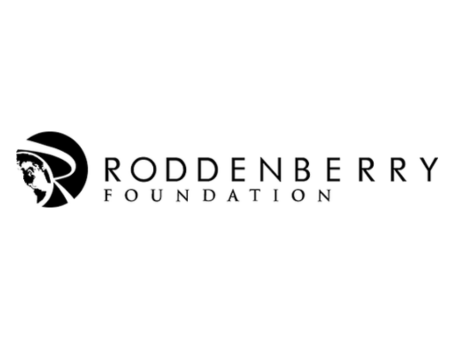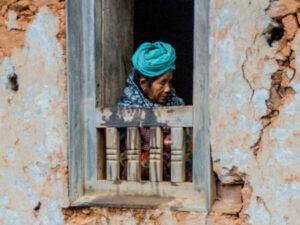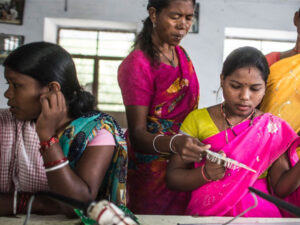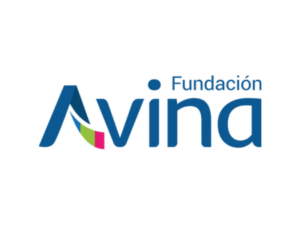The Roddenberry Foundation uses grant-making to invest in big and bold ideas that can change the world.
Lior Ipp of Roddenberry Foundation spoke with Jessica Kantor on February 21, 2024. Click here to read the full interview with insights highlighted.
Jessica Kantor: Can you introduce yourself, the organization that you’re with, and the problem that you’re working to address?
Lior Ipp: My name is Lior Ipp. I’m the CEO of the Roddenberry Foundation. We are an issue-agnostic and geographic-agnostic foundation working globally to help solve or address some of the big issues that are plaguing the world. We work on everything from WASH [water, sanitation, and hygiene], education, food security, and climate change to human rights and justice and equity issues in the US. We have a number of different programs that we work on, and each is targeted at different parts of the world, different issues, and different ways of affecting change.
Jessica Kantor: Who are the people or groups of people that you’re serving, and how do you engage with them?
Lior Ipp: Each program is different and looks at different audiences and different mechanisms, but largely speaking, we’re interested in serving vulnerable and last-mile communities around the world, and that includes women, people of color, girls, LGBTQI communities, and folks who are living in communities where they’re either being persecuted for different reasons or just facing extreme poverty. That’s true across our programs.
In terms of the modalities, we have an early-stage program that is like a rolling application model so folks can apply whenever they want. We have a collaborative funding model called the +1 Global Fund, which Skoll is involved in. That is a funder collaborative and peer nomination framework. We award a big prize that targets science and tech early-stage ventures, and we have a fellowship program that’s US-based and targeted towards folks working at the intersection of social justice issues and things like poverty, climate, education, health, and hunger. We have different programmatic mechanisms for addressing each of those, but largely speaking, the communities that we’re serving are the same across the board.
Jessica Kantor: When you say all across the world, are there specific countries that you’re in, or is it just if someone needs help, in any area, you have the ability to aid them in some way?
Lior Ipp: It is global, so we don’t have IRS restrictions or places where we can’t operate. We are open, depending on the program applications or nominations from most places, so we can essentially work anywhere around the world.
Jessica Kantor: Can you share a couple of examples of the impact that your work has had in those different areas you mentioned? It could be a success story, or it could just be an example of how someone might go through all of the different channels from start to finish.
Lior Ipp: We have hundreds and hundreds of grantees, but to pinpoint one example, last year, we awarded a prize to a group that figured out how to use liquid biopsies to detect cancer early. That could have a massive impact if they’re successful over time. We also work with tiny, small grassroots organizations that have $20,000 or $30,000 budgets, and that are making a difference in their specific communities.
One of the things that we’re particularly interested in is organizations that are systems-oriented. We tend to not fund organizations that are only doing peer direct service, but focus on organizations or individuals who are looking at the ways in which they can influence the broader system. For example, if it’s a WASH issue, in addition to whatever they’re doing for their specific communities, we’ll ask: Are they influencing governments? Are they engaging other stakeholders? Are they working with local partners?
I would say in terms of a through line across the organizations we support, the majority of them do have a systems orientation to the work that they’re doing. For example, one of our fellows is Anita Ravi, and her organization is called PurpLE Health Foundation. She works on healthcare for survivors of gender-based violence. They have an amazing trauma-informed, survivor-centered approach that provides holistic healthcare for folks who need it. This includes physical, mental, and financial health, and they’re doing extraordinary work.
Jessica Kantor: Did she apply for a fellowship? Can you walk me through how your organization is involved in that?
Lior Ipp: Yes, Anita is one of our Roddenberry Fellows. Our Roddenberry Fellows are individuals based in the US who are doing extraordinary and innovative work around different issues affecting vulnerable populations in the US specifically. It’s an annual program, targeted at US-based individuals and organizations.
We have an open application process where folks can apply, and that tends to be in March or April. There are two rounds of applications, then there’s an interview process. The folks who are selected for a fellowship receive $50,000 for the year, and they’re inducted into a community. They get coaching over the course of that year, and they’re invited to two retreats where they meet their cohort and where they meet alumni. We do a series of workshops over the year and provide them with lots of opportunities to receive capacity building, organizational development, and ultimately peer support.
Jessica Kantor: How many people do you think have gone through that fellowship at this point?
Lior Ipp: We have almost a hundred fellows at this point. They’re all across the country and they address all kinds of issues in both urban and rural communities.
Jessica Kantor: I imagine you have different metrics for the different areas you work in, but how are you measuring success overall?
Lior Ipp: We do reporting with all of our grantees and awardees, so we have a good sense of both the direct and indirect impact that their work has had on the communities they’ve worked with. We aggregate that, so we know at the end of the year what that looks like for each organization and then across the foundation.
All of our grantees report on specific goals that they set at the beginning of the grant period, so we know whether they didn’t meet, met, or exceeded their individual goals. The reporting is both qualitative and quantitative, and it’s both written and in-person. For instance, we do interviews with all of our grantees. So we have a good sense of what impact looks like across the foundation’s work.
Jessica Kantor: Do you have any internal success metrics?
Lior Ipp: We have tons because we look at the efficacy of the programs themselves. Each program has different goals and different metrics. We’ll look at things like, Are we finding organizations that are serving the populations that we’re interested in? Are we being catalytic in our funding? How good is our programming? In regards to our fellowship, are we getting positive feedback on the retreats? Are we getting positive feedback on the coaching? For the +1 Global Fund, we do a ton of capacity building and organizational development, and we ask all of our awardees to evaluate the different ways in which we’re engaging them. We have a slew of ways in which we’re evaluating ourselves, the service providers that we’re working with, and the programs that we’re running, and it’s all driven by grantee feedback. If they’re telling us we’re not doing a great job, then we make changes accordingly.
Jessica Kantor: Has your work given you any insights or teachable lessons that others could learn from?
Lior Ipp: Yes, we’ve made tons of mistakes along the way and figured out how to overcome many challenges. One very valuable lesson we’ve learned along the way is that it’s important to engage grantees in ways that are trust-based and transparent, and that meet their needs and essentially meet them where they are. We try to be as grantee-centric as possible. Of course, there are times over the years when we’ve done a better job of that than others.
In terms of specifics, each program is different, but to generalize, I think that the more we know, and the more we engage our grantees and partner with them, the better we are at meeting their needs. With each program, we’ve learned different modalities for getting feedback, for reaching folks and talking to them, finding out what the commonalities are, what the patterns are, and then tailoring how we work with them.
Creating feedback loops and being able to pivot relatively quickly has been critical, and building mechanisms and platforms online has really helped us in being able to tweak our programs.
As an example, for each of our programs, we’ve changed our applications dozens of times. Each question gets looked at every six months or so to see whether the question that we’re asking in our application is giving us the information we need to make an informed decision. Being open to flexibility, being adaptive, and being willing to recognize when we don’t get it right the first time, as well as creating mechanisms for feedback, have all been critical in changing our programs. Continually challenging ourselves to do what we’re doing better has served us really well.
Jessica Kantor: Do you have any challenges that you’re currently facing that you haven’t been able to overcome yet?
Lior Ipp: The challenges that we face are similar to the challenges a funder would face. Are we making the right bets? Are we finding the organizations we want to support? Are the ways that we’re serving the nonprofit sector of value? Are we being duplicative or not? Are we meeting grantees in ways that are valuable and useful to them, particularly from a programmatic standpoint? Are our gatherings, our workshops, our coaches, and our retreats meeting their needs? It’s not as challenging as it would be if you were on the other side, looking for funding and doing the work itself, but we are in service of communities that need support, and it’s a challenging space to work in.
Jessica Kantor: How do you see your work evolving over the next five years?
Lior Ipp: We tend to let the folks who are doing the work inform what direction we go in. If there are world events that dictate what direction we need to go, then we try to be responsive to that, whether it’s human-made or climate-based. We’re looking at scaling in each of our programs, so just doing more of what we currently do is part of a five-year trajectory. Being open to new forms of grant-making and developing new programs based on the feedback we get and our own analysis of what’s working means that we could easily have new programs in five years that we don’t have today. There may be regions of the world that dictate that we spend more, and invest more time and effort, there, or there may be issues that will demand more of our resources. In our desire to be responsive to the feedback and the needs of the folks that we’re working on behalf of, we will accommodate and change and pivot as needed.
Jessica Kantor: For the next five years or beyond to be even more successful than past years have been, what do you think is needed from other actors or partners?
Lior Ipp: Because we have a collaborative fund, having our values more aligned with funders who are interested in supporting locally-led, small organizations that are influencing systems in their communities, is going to be pivotal. I think as a funder, we’re in some ways less dependent on external factors, but I think success will be predicated on how good we are at meeting the needs of the grantees that we’re working with and potentially creating new programs that serve a broader audience. Each program is different enough that we’re working with different stakeholders and different partners, but I think at a fundamental level, in terms of our funder collaborative, it’s about how we engage and work with other funders.
Jessica Kantor: What do you think makes your approach distinctive?
Lior Ipp: The +1 Global Fund — which is one of the programs that we work with Skoll on — is very unique in that we leverage peer nominations as a mechanism for sourcing small organizations. That means that we work with local organizations on the ground that have networks of either high-impact social entrepreneurs or grassroots organizations, and it’s they who make the nominations that become the pool of who we’re supporting. We’ve been doing that now in about 28 countries. It is a really unique model and we’re hoping other folks either partner with us to do it or adapt it on their own. I think there are other opportunities to think about how we find organizations that are doing great work beyond the traditional models of open applications or invitation only. Perhaps we know that certain organizations are underfunded or under-resourced, but they do not have access to the networks and the funders that they need by virtue of where they are or the issues they’re working on.
I think, as funders, we need to think about different ways of finding these organizations and the onus should be on us to do that, not the organizations themselves. I think that certainly, +1 is a very non-traditional, unique, and innovative program. We use peer nominations in our prize as well, and we work with impact investors, venture capitalists, and academic institutions, among others, to find organizations or ventures that are at an earlier stage, and still risky to support, through the prize.
A lot of the work that we do is trying to navigate around the traditional modes of philanthropy and thinking about ways that philanthropy can be done with an eye towards the grantees themselves and the folks who are doing the work, which means working with a greater sense of urgency, transparency, and trust. It’s about simplifying the hurdles that organizations typically have to deal with in finding funding and streamlining those processes. Being more responsive to them, unfortunately, is not the norm, so our internal mandate is, “How do we do that in ways that break the traditional philanthropic models that most of us abide by?”
Jessica Kantor: Were you a part of the decision to start asking about nominations? Or if not, do you know how you guys got to the point where you came up with this idea?
Lior Ipp: Originally, it was a response to COVID. We recognized that we needed to get funds out the door as quickly as possible, but strategically, particularly in regions of the world that were being affected most acutely by the pandemic, especially last-mile and vulnerable communities. There were great folks that we already knew on the ground doing work, so we figured just asking them who they thought was doing effective work in responding to the pandemic might be a smart way to find these folks. We quickly realized that we were onto something really interesting. We built out a platform that helped do this in a more streamlined way, and then over the next year and a half, we got so much interest from other funders, we built it out into the program that it is today. It evolved very organically and internally.
Jessica Kantor: How many organizations do you think have been funded that way? Do you have a ballpark of how much money that would amount to?
Lior Ipp: We’re close to having funded 150 or 160 organizations in about 28 countries, which would be about $5 million.
Jessica Kantor: Is there anything that we didn’t talk about that you think is important or interesting to share?
Lior Ipp: I think it’s important for funders to be more innovative in their approaches and to think about how they can be more grantee-centric. We’re big proponents of supporting small, locally-led organizations and moving away from the traditional, larger NGOs who are receiving a lot of the funding. We are also big proponents of small organizations doing systems-based work. We’re big fans of trust-based philanthropy and we’re big fans of collaboration. We’re encouraging other funders to collaborate more with their peers or, at the very least, share and create opportunities for dialogue. That is really important.
The onus should be on funders to change their practices versus on the organizations working on the ground. We have the resources and the capacity to do it in ways that they don’t. Looking internally and thinking about ways that we, as funders, can do things differently is going to achieve that.
The last thing I’ll say is we’re also big believers in being able to support individual organizations as well as networks. A lot of the work that we’ve been doing over the last few years is investing in networks of organizations in addition to individual organizations. What does that look like as funders? Can we think about the unit of analysis beyond just individual organizations and how they can affect change by themselves? What does it look like to support a network of 5, 15, 50 organizations that are working on similar issues, in similar parts of the world? Investing in that network and the long-term resiliency of those organizations is an important part of our work and where we see great potential for other funders to invest.
Jessica Kantor: Thank you for taking the time to talk with me today and sharing your insights.
Click here to read the full interview with insights highlighted.
Jessica Kantor is an independent journalist specializing in health, human rights, and social impact. Her work can be found in Fast Company, Healthcare Quarterly, The Las Vegas Review-Journal, and others. She is a living kidney donor.
* This interview has been edited and condensed.
Find other organizations creating social change in grantmaking.







